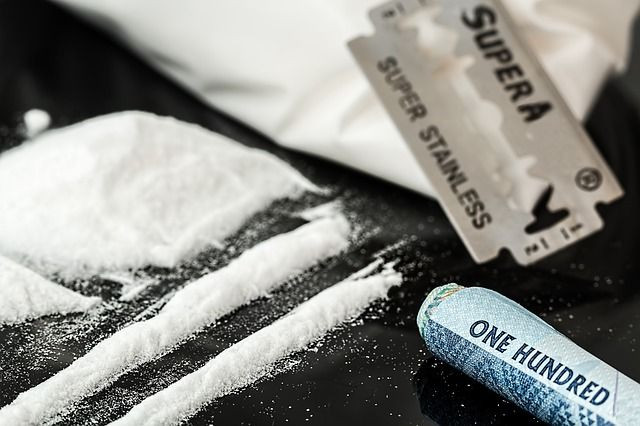Cocaine Dangers: Users Are Less Likely To Practice Safe Sex, Plus 3 Other Surprising Side Effects Of Drug

Cocaine is a stimulant that causes feelings of euphoria and hyperalertness, but the drug also has lesser-known effects on the body and on behavior. A recent study has found that cocaine may make you less likely to practice safe sex, whichcould seriously compromise sexual health.
The study, now published online in Psychopharmacology, found that cocaine not only increased users' sexual arousal, but also made them more impatient, and therefore more likely to have sex without a condom. The researchers believe this dangerous combination of increased arousal and decreased patience could be a serious health risk for users, and that health professionals should be more aware of this connection.
Read: Is Weakened Heart Health Linked To Years Of Drug Abuse?
"The bottom line is that cocaine appears to increase sexual desire, and even though users who are on cocaine report being likely to use a condom if they had one in a risky sex situation, if a condom isn't available, cocaine makes people less willing to postpone sex to get a condom," said study author Matthew Johnson in a news release. "They become more impatient when it comes to waiting for sex."
For their study, the team had habitual cocaine users take the drug in a lab setting. Volunteers were asked to report their level of sexual arousal when shown images of individuals on a computer screen that, hypothetically, were willing to have casual sex with them. The volunteers were also asked if they would use a condom if they had to wait increasing lengths of time, such as two minutes, five minutes, 15 minutes, 30 minutes, one hour, three hours or six hours.
Although the lab setting may not exactly mirror a real-life situation, results showed that the more “high” individuals were on cocaine, the more aroused they became and the less likely they were to wait a period of time to have sex. While the likelihood of using a condom fell with increasing amounts of waiting time, regardless of whether volunteers were on drugs or not, the researchers noted that this drop in patience was most significant for volunteers high on cocaine.
Cocaine’s effect on our bodies doesn’t stop with our sex drive and ability to make safe decisions. Here are four more strange yet very real ways using cocaine can affect your health.
Cannot Store Fat
Regular cocaine users are usually quite thin for a reason. Cocaine does not just suppress the appetite; The drug impedes with the body’s ability to store fat. According to a 2013 study, it does this by stimulating significant metabolic changes that cause a significant imbalance between fat intake and fat storage. While this may sound like a positive side effect of the drug, it does have a pitfall. When users eventually do stop using cocaine, they may experience significant weight gain as a result.
Weak Heart
Cocaine is a stimulant, which means the drug can put a strain on your heart. Abusing cocaine has been found to increase the heart’s demand for oxygen by raising heart rate and blood pressure. Although the drug causes the heart to work harder, it also means the heart gets less blood and oxygen. This could cause an enlarged heart, which in the long run may increase your risk for a number of cardiovascular conditions, including a heart attack.
Mood Swings
Cocaine can take your brain on a rollercoaster of emotions, as many users are probably aware. Cocaine messes with the amount of dopamine that builds up in your brain. When you are high, dopamine levels build up, giving users a euphoric feeling of pure pleasure. However, once the high has subsided, users can experience a very bad downer. In addition, the dopamine imbalances caused by cocaine use can also cause psychotic episodes, delirium, and sexual dysfunction.
Source: Johnson MW, Herrmann ES, Sweeney MM, LeComte RS. Cocaine administration dose-dependently increases sexual desire and decreases condom use likelihood: The role of delay and probability discounting in connecting cocaine with HIV. Psychopharmacology . 2017
See Also:
Cocaine Addiction Causes 2016: This Brain Molecule May Drive Compulsive Drug Use
Single Dose Of Cocaine Linked To Greater Problems Recognizing Negative Emotions
Published by Medicaldaily.com



























